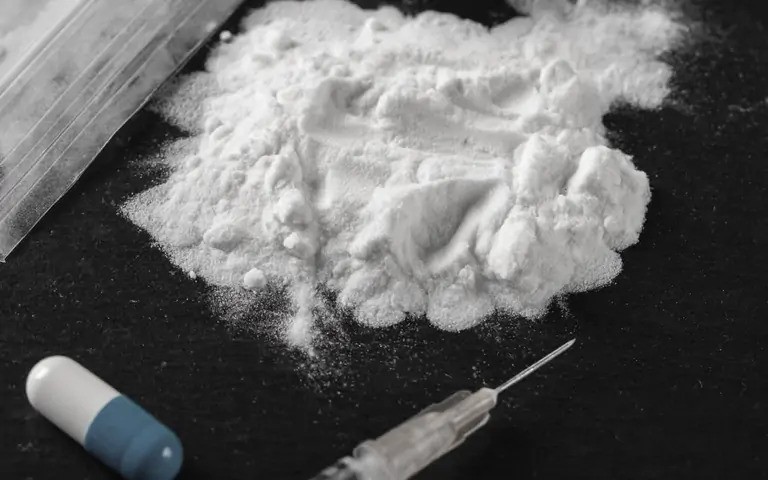Last Updated on April 1, 2024
Introduction
Are you a PCP user and wondering how long does PCP stay in your system? PCP is the most dangerous drug that provides hallucinogenic side effects. In this note, we've highlighted the effects of PCP, how the human body processes, detection windows, factors, and many more.
So, without more talk, let's dig in!
What is PCP?
Phencyclidine, known as PCP, is a white crystalline powder and one of the most addictive drugs. It was developed in the 1950s as an anesthetic. But because of its severe psychotic effects, they discontinued using it. It directly affects the central nervous system.
As per the US Drug Enforcement Administration, PCP has different street names, i.e., "angel dust," "hog," "elephant tranquilizer," "wack," and many others. Sometimes, this drug is used to link to violent crimes and aggression. Applying an overdose may lead to a fatal medical emergency.
| Note: You can find PCP in several forms, like powder, pills, and liquid. People normally use PCP via smoking, dissolving it in a liquid, and injecting it into veins. |
Effects of PCP
The effects of PCP depend on how much you take and how it is delivered to your system. Some take it by other substances (marijuana, etc.). PCP is also classified as a Schedule I and Schedule II drug. Among them, Schedule I is more dangerous compared to Schedule II.
Let's look at both short-term and long-term side effects of PCP below:
- PCP use can cause hallucinations, distorted perceptions of reality, delusions, and a sense of detachment about oneself or the surroundings.
- Some drug users encounter mood, anxiety, and confusion.
- Chronic PCP can cause memory loss, cognitive impairment, and many more effects.
- Other known effects of PCP are euphoria, nausea, vomiting, and others.
- Extreme-level PCP effects are seizures, coma, sudden death, and skeletal damage.
Sometimes, PCP users may risk their lives with suicidal thoughts, depression, memory, and reasoning problems. After acknowledging PCP side effects, it's time to focus on how PCP processes in the human body.
How the Human Body Processes PCP?
There are several factors like genetic, co-occurring disorders (process addiction), metabolic activities, personal traits (heredity, gender, muscle mass, kidney, and liver function), and others that affect the processes of PCP.
However, by considering several factors that influence the PCP presence in the body, we've highlighted key facts below:
Absorption and Distribution
After absorbing PCP, it travels into the bloodstream through the gastrointestinal tract or the lungs. After that, it travels throughout your body, like the brain, hair, and urine. The absorption and distribution time frame can depend on an individual's metabolism and the presence of other substances.
Metabolism
PCP metabolites occur in the liver, and enzymes break down into different metabolites, which are transferred to different body functions. The specific metabolic pathways depend on an individual's immunity, like how fast it eliminates the body.
Excretion
After metabolism creation, it is easily eliminated through various routes, like urine, sweat, and feces. The exertion time may vary from hydration, kidney function, and individual metabolism.
How Long Does PCP Stay in the Human Body?
The presence and staying time frame may vary from person to person. Also, there are several factors that influence how long it stays in the human body, such as - -
Dosage and Frequency
Higher and frequent use of PCP can take longer to eliminate from your system. Also, it leads to high risk and leads to the accumulation of the drug in your body. If you take small dosages of PCP and are not a frequent user, it may result in faster elimination from your system.
Metabolism and Health Factors
Individual metabolism is one of the most important factors in determining or ensuring how long PCP stays in your system. The metabolism factors are age, gender, liver function, and overall health-related activities. A faster metabolism helps in quicker elimination, but a slower one may stay longer time.
Health factors like kidney function, hydration levels, and others also affect PCP excretion. As per research, healthy kidneys function perfectly, and adequate hydration helps to eliminate faster from the system.
- Blood Testing: PCP remains detectable in the bloodstream for a limited window, typically ranging from several hours to 1 to 3 days post-consumption. This timeframe is comparatively shorter than other testing methods.
- Hair Testing: Hair follicle analysis offers the lengthiest detection window, spanning up to 90 days or more, contingent upon the individual's hair growth rate.
- Saliva Testing: PCP can be discerned in saliva samples within 1 to 3 days following usage.
- Urine Testing: Urinalysis can reveal PCP presence within 1 to 7 days post-consumption. Nonetheless, habitual users might exhibit prolonged traces of the substance.
The Role of Diet
Are you going through a balanced diet and staying hydrated daily? This factor is also crucial to counting the detection time of PCP metabolism. Fruits, vegetables, fibre-rich foods, and a healthy diet can support overall health and assist in eliminating drugs quickly.
Methods to Detect PCP in the Body?
PCP is a lipophilic compound that has 7-46 hours an appx. Half-life. Inside the body, it stays approximately. 21 hours. However, there are different methods available to identify PCP in the body, such as -
Urine Testing
Through urine, researchers can detect PCP and its metabolites. The detection window will be a few days to a week, depending on several factors. For chronic or chain PCP users, the detection widow will be longer than others.
Blood Testing
Blood testing is another effective method to detect PCP metabolites. By collecting blood samples, researchers can detect within 24 to 48 hours after use. Blood test gives more suitable results.
Hair Testing
Hair testing provides a longer detection window, up to 90 days or more. Hair samples are often used to detect past PCP use because drug metabolites are trapped in the hair follicles and grow day by day.
Saliva Testing
PCP can be detected through saliva testing for up to 5 to 10 minutes after absorption. It's not an effective technique as others.
Reasons to Test PCP?
The identification of PCP is a must thing in several states because of its high-risk factors. As an illegal drug, different countries have banned the use of this. The main reason for testing PCP is to confirm a secure and safe working environment. Other reasons are:
- Employers, police, and hospitals test PCP for job security purposes.
- Medical technicians test PCP to create a drug treatment plan.
- Sometimes, PCP testing becomes a must thing for the investigation of crime.
- Chronic illness management like heart diabetes, heart, depression, and other long-term issues.
- Weird rash, strep throat, and other everyday illnesses require a test PCP.
Final Thoughts
After going through the article: How Long Does PCP Stay in Your System, we hope you acknowledge PCP side effects, factors that help individuals, and other factors. PCP is the most dangerous one and leads one to death. So, try to avoid taking PCP to lead a healthy lifestyle.







